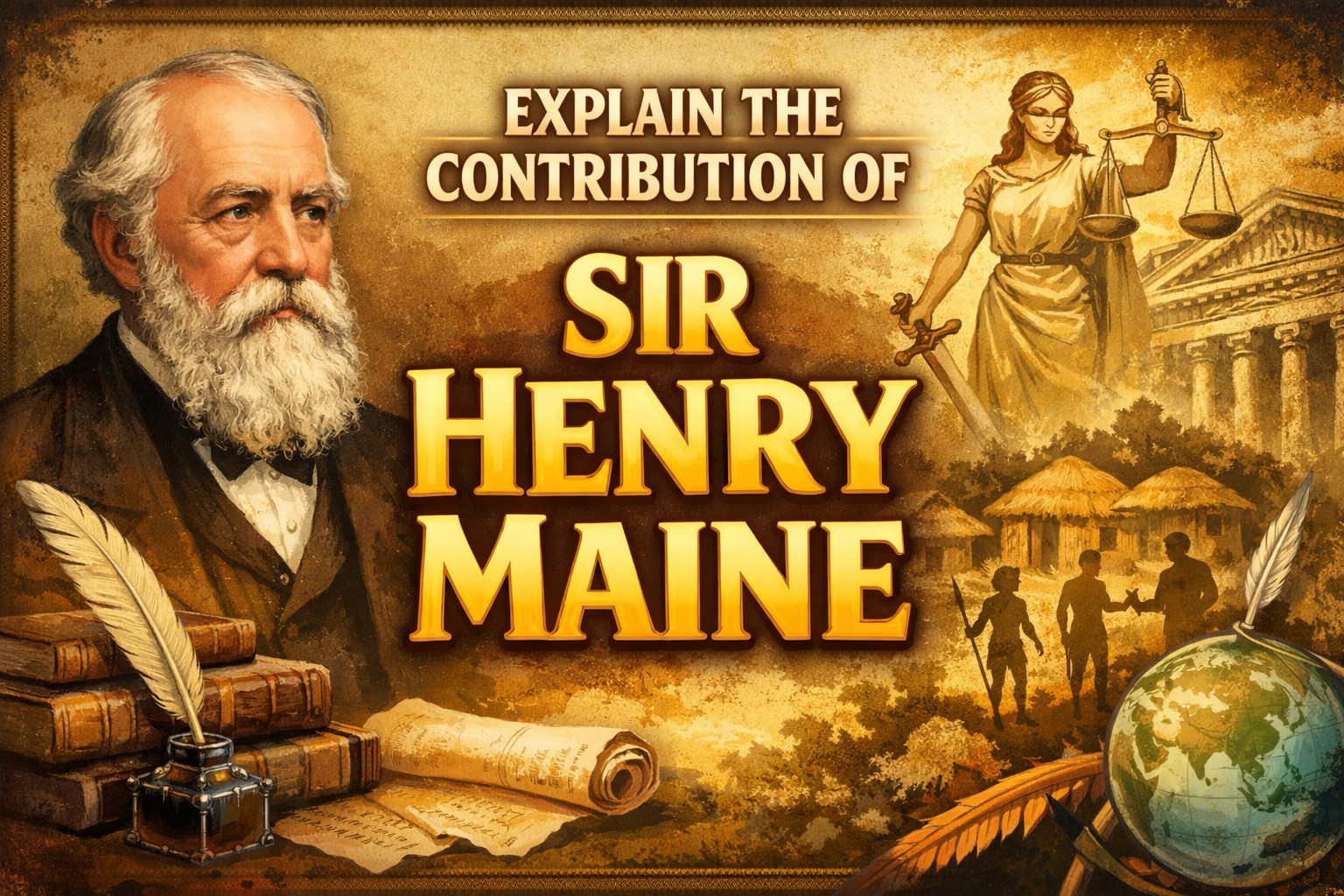Explain the contribution of Sir Henry Maine.
Ans. Contribution of Sir Henry Maine (1822-1888)—Sir Henry Maine was a great ‘English’ Jurist who presented a very balanced view of history. Savigny explained the relation between community and the law whereas Maine went further and pointed out the link between the developments of both and purged out many of the exaggerations which Savigny had made. Maine started his career as Regius Professor of Civil Law in the University of Cambridge at in early age of twenty-five. He was Law Member in the Council of the Governor General of India between 1861 and 1869. This provided him an opportunity for the study of Indian Legal system. From 1869 to 1877 he occupied the chair of historical and comparative jurisprudence in Corpus Christi College, Oxford. ‘Ancient Law’, Village ‘Communities,’ Early History of Institutions’, ‘Dissertation on Early Law and Customs’, are the important contributions made by him to legal thought and legal philosophy.
Most of the historical jurists of the Continent confined their studies only to Roman Law but Maine studied the legal systems of various communities and by their analysis laid down a comprehensive theory of the development of law. On the one hand, differing from Savigny, Maine recognised legislation as a very potent source of law, and on the other hand, he avoided the excesses of philosophical school of Germany.
Maine used the study of legal history mostly to understand the past and not to determine the future course and standards, and in this field he made valuable contributions to legal theory Later researches in anthropology have brought new facts into light which do not support Maine’s view of the course of legal development but even then his work is creditable for his approach. Maine made a comparative study of various legal systems and traced the course of their evolution.
According to him, law developed through the following ‘four stages’ i.e.,—
(i) Law made by the ruler under divine inspiration,
(ii) Customary Law.
(iii) Knowledge of law in the hands of priests,
(iv) Codification.
The societies which do not progress beyond the fourth stage are “static societies” (as Maine calls them). The societies which go on developing their law by new methods are called progressive. Progressive societies develop their laws through legal fiction, equity and legislation. As to the legal conditions prevailing at the end of the general course of evolution, i.e., of static societies, Maine calls them ‘status’ and ultimately he concluded that a progressive society moves “from the status to contract”. Maine’s theory preaches a belief in progress and it contained the germs of sociological approach. He inspired later Jurists like Maitland, Vinogradoff and Lord Bryce, who applied historical and comparative method of the study of law.




















